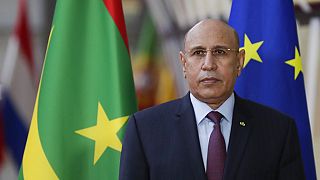Global tech giant Google has added 24 new languages spoken by more than 300 million people to its Google Translate platform.
Ten of the new additions are in Africa, including Lingala - Democratic Republic of Congo, Twi - Ghana and Tigrinya - Eritrea.
"For years, Google Translate has helped break down language barriers and connect communities all over the world," the US-based company said.
This new addition is aimed at helping those whose languages "aren't represented in most technology", the BBC reports.
The new language update comes with Bhojpuri, which is spoken by as many as 50 million people in northern India, Nepal and Fiji, to Dhivehi with its estimated 300,000 speakers in the Maldives.
The update now brings to 133 the total number of languages available on Google Translate.
The company says the new languages also represent a technical milestone, explaining that they use a machine learning model which learns to "translate into another language without ever seeing an example."
But the company, however, admits that the technology isn't perfect as some linguists have noted problems with the languages already available.
"For many supported languages, even the largest languages in Africa that we have supported - say like Yoruba, Igbo, the translation is not great. It will definitely get the idea across but often it will lose much of the subtlety of the language," Google Translate research scientist Isaac Caswell told the BBC.
In 2020, Google Translate added five new languages to the platform in what was then its first expansion in the past few years.














02:07
Morocco explores its digital future at the 2025 Morocco Gaming Expo
Go to video
Paraguayan town celebrates vibrant Kamba Ra'anga festival with masks, fire and tradition
01:47
Chinese city of Xuchang is world's biggest producer of wigs
01:15
U.S. considers adding more African countries to travel ban
01:00
Renewed calls to end plastic pollution on World Environment Day
00:52
Bill Gates says most of his $200 billion fortune will go to Africa over next 20 years